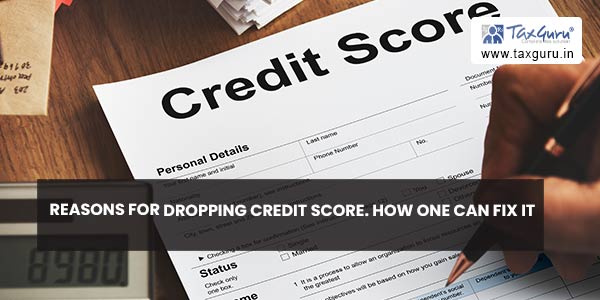#AD
A credit score is a three-digit number ranging between 300 to 900, which shows your financial health. Your credit history, outstanding debts, and payment pattern, among other things, are the crucial factors that directly influence your credit score. And failure to balance these elements in an appropriate manner may drop your credit score.
Let’s look at these factors and how to improve the CIBIL score :
Page Contents
1. Payment History
Your credit score heavily depends on your payment history. Even one missing or late payment might have a detrimental effect on it. In some events, credit card companies may impose a late fee and interest if you make a payment after the due date. Additionally, if they didn’t receive the payment before the due date, the issuer may notify the credit bureaus of the default, which might lower your credit ratings.
♦ How to Fix it
Pay all your outstanding debts in a timely manner. Moreover, you can also use an auto-debit payment mode as it will deduct the amount automatically on the fixed date of each month. You may also put a monthly reminder for payments.
2. High Credit Utilisation
Credit usage is the proportion of credit you have utilised in comparison to the amount of credit you have been provided by the financial institution. It also alludes to a ratio used by lenders to measure your creditworthiness and an element used to calculate your credit score.
The probability of your credit score deteriorating increases as you utilise more of your available credit.
♦ How to Fix it
To assist you in maintaining a good credit score, professionals recommend maintaining your credit use at 30% or below. It will also help in demonstrating to lenders that you are a responsible borrower.
3. New Credit Card Applications
Your credit ratings may be impacted by multiple credit card or loan applications. This is due to the fact that a new credit application typically results in a hard inquiry, which can lower your credit scores.
Additionally, making several credit applications in a short span of time may be seen as an indication that your financial condition has deteriorated, which might lower your credit ratings.
♦ How to Fix it
If you apply for and are rejected a loan or credit card, the data will be included on your credit report. In such cases, it is better to avoid applying again and instead wait for the CIBIL score to improve.
4. Negative Comments on Your Credit Report
Derisive accusations such as late or missed payments, bankruptcies, and foreclosures might lower your credit score. Bankruptcies, based on the form, might often be on your credit record for up to 10 years, whereas late payments and foreclosures would usually be reported for up to seven years.
♦ How to Fix it
In the event that the data is inaccurate, you must report and notify the credit agency and your card issuer about it. However, if the data are correct, appropriate credit utilisation might help you raise your score over time.
5. Closed Credit Card
Since the credit limit on a closed credit card is removed from your credit report, you will have less overall accessible credit. As a result, if you’ve been holding any amounts, they will account for a larger portion of your available credit, increasing your credit utilisation. In addition to this, the average age of your credit accounts might reduce if you close a credit card.
♦ How to Fix it
Examine your credit usage regularly in order to avoid excessive credit utilisation. However, if it is high, you can balance it by making outstanding payments, requesting an increase in your credit limit, or getting a new credit card.

6. Other Person Using Your Credit Card
You may allow another person to use a credit card connected to your account. By doing so, they will receive a credit card in your name and may use it to make purchases. However, if the person does not use the card responsibly, it may raise your credit usage, lowering your credit ratings.
♦ How to Fix it
You must set a spending cap for the authorised user before adding them to your account. It may assist you in avoiding errors that might damage both your and the authorised user’s ratings.
7. Error on Your Credit Report
Sometimes, you may see some inaccurate information like incorrect payment history, outstanding debts, etc., on your credit report. These errors may negatively affect your credit score.
♦ How to Fix it
In the event of any incorrect information, you must dispute it by contacting the credit bureau.
Conclusion
Your credit score is one of the most important aspects that assist you in procuring any loan or a credit card easily and quickly. A score above 750 is deemed a good number. While assessing your eligibility for any loan or credit card, your credit score is the foremost factor that is taken into consideration. As a result, you should always maintain a good score.




